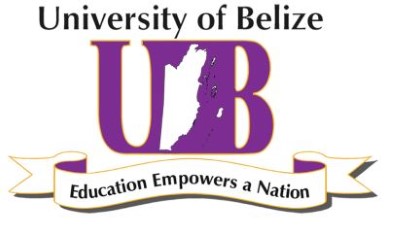 1.What is the vision and mission of your organisation?
1.What is the vision and mission of your organisation?
The Department of Science is within the Faculty of Science and Technology, University of Belize (UB), located in the City of Belmopan, Belize.
The Department of Science’s mission is committed to providing quality programmes and support courses in the Natural Sciences that contribute to national development.
In terms of our vision, The Department of Science promotes self-expression, intelligent choices, analytical thinking, leadership qualities, social responsibility, justice and the search for truth, which will enable the individual to perform effectively as a member of the UB community and the society at large.
2.Why did you decide to become a GWP Partner?
The Department of Science is committed to maintaining and providing academic and practical knowledge on the management of natural resources in our Natural Science Academic Programmes. One essential natural resource in Belize is water, therefore proper use of this resource needs to be taught and promoted via Integrated Water Resource Management (IWRM) and the application of sustainable development principles at academic and management levels in the country.
3.What have you found to be the benefits of being a GWP Partner?
Among the benefits is the academic opportunity related to water resource management, including: a graduate degree with scholarships for young professionals, training courses in applied water resources management, workshops and on-line courses. Also, the academic and practical information in the GWP newsletter about efforts and activities related to water management are being carried out in municipalities and countries in Central America and the Caribbean.
4.What is the one challenge facing the management of water resources in your area of expertise?
The main challenge is the lack of willingness to plan, organise actions and share information, related to water management issues at the watershed level amongst governmental departmenst, non-governmental organisations (NGOs), the agricultural sector and communities. There are isolated efforts and actions in water resource management by NGOs and a few governmental departments, whereby technical and financial resources need to be optimized and incorporate in the watershed integrity and involvement of all stakeholders.
5. Are there any special projects or initiatives that you would like more widely known?
Currently, there is an ongoing academic revision of the Natural Resources Management Program, an undergraduate program, whereby water resource management courses will be offered. Within research projects of water quality management, we are conducting preliminary water quality assessments in various sub-watershed and catchment areas of importance in two main watersheds in Belize. This effort is to produce a preliminary water quality profile and a map to inform the communities, NGOs and governmental departments about water quality management. The works are done with B.Sc. Thesis Projects students in collaboration with local experts, community-based organisations and the Department of the Environment (DoE).

